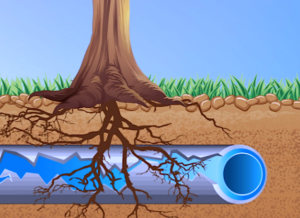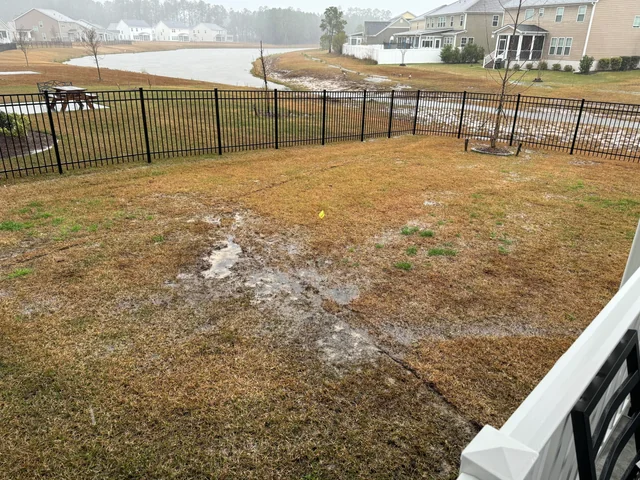Septic systems are critical for homeowners who are not connected to municipal sewer lines. Understanding why your septic pump fails, how to recognize warning signs, and what to do next is essential in keeping your system running smoothly. In this updated 2025 guide, we’ll cover everything you need to know about septic pump failures, preventative maintenance, and new advancements in septic technology.

Common Causes of Septic Pump Failure
Septic pumps can fail for a variety of reasons, but some of the most common causes include:
1. Clogs & Blockages
A septic pump is designed to move wastewater from the septic tank to the drain field. However, if the pump becomes clogged with solid waste, grease, or non-biodegradable materials, it will struggle to function properly.
✅ Non-biodegradable waste: Flushing items like baby wipes, paper towels, and feminine hygiene products can create severe blockages.
✅ Grease buildup: Cooking oils and fats solidify in pipes, leading to pump failure over time.
✅ Heavy solids accumulation: If a septic tank is not pumped regularly, sludge can overflow and clog the pump.
2. Electrical Issues
Septic pumps require electricity to operate. If power is not being delivered correctly, or if wiring is damaged, the pump may fail to activate or shut off unexpectedly.
✅ Tripped circuit breakers: Electrical surges or storms can cause breakers to trip.
✅ Faulty wiring or loose connections: These issues prevent power from reaching the pump.
✅ Failed control panels: Many modern septic systems rely on computerized control panels that can malfunction over time.
3. Mechanical Wear & Tear
Like any machine, septic pumps have a lifespan. Parts such as the impeller, float switch, or motor can wear down and stop functioning correctly.
✅ Aging components: A septic pump typically lasts 7-10 years before needing replacement.
✅ Float switch issues: If the float switch becomes stuck or disconnected, the pump may not activate at the correct time.
✅ Frozen or damaged pipes: In cold weather, pipes leading to or from the pump can freeze, causing backups.
4. Drain Field Issues
Even if your septic pump is working correctly, a failing drain field can cause the entire system to back up.
✅ Soil saturation: If the drain field becomes waterlogged due to heavy rainfall, the pump will struggle to discharge wastewater properly.
✅ Tree root infiltration: Roots can grow into pipes, blocking the flow of wastewater.
✅ Improper installation: A poorly designed drain field may not have enough capacity for your household’s wastewater needs.

Warning Signs of a Malfunctioning Septic Pump
Recognizing early warning signs can help prevent catastrophic failures. Here’s what to watch for:
1. Slow Drains & Backups
If water is slow to drain from sinks, tubs, or toilets, it could indicate a pump failure or a clogged system.
2. Foul Odors
A strong sewage smell coming from drains, near the septic tank, or around the drain field is a clear red flag that wastewater is not being processed properly.
3. Gurgling Sounds
Unusual gurgling noises in your plumbing system often mean that wastewater is having trouble flowing through the pipes.
4. Alarm System Alerts
Many modern septic systems have built-in alarms that will sound if the pump fails or if waste levels become dangerously high.
5. Pooling Water in the Yard
If you notice standing water or soggy soil around your septic tank or drain field, your system may be overflowing due to pump failure.

What to Do If Your Septic Pump Fails
If you suspect your septic pump has failed, follow these steps immediately:
1. Stop Using Water
Avoid using sinks, toilets, dishwashers, or washing machines to prevent further overflows.
2. Check the Circuit Breaker
Ensure that the pump’s electrical breaker hasn’t tripped, reset if necessary.
3. Inspect for Visible Clogs
If you can safely access the pump chamber, check for obstructions such as wipes, grease, or debris.
4. Listen for the Pump Motor
If the pump is silent when it should be running, it may have electrical or mechanical issues.
5. Call a Septic Professional
If the pump doesn’t restart or if the problem persists, contact a licensed septic technician immediately. Do NOT attempt electrical repairs yourself.

Preventing Future Septic Pump Failures
Regular maintenance and smart usage can extend the life of your septic system and reduce costly repairs.
✅ Pump your septic tank regularly: Most homes need pumping every 3-5 years, depending on usage.
✅ Avoid flushing non-biodegradable waste: Educate guests and use bathroom signage.
✅ Install a septic alarm: This alerts you to rising waste levels before they become a problem.
✅ Maintain proper landscaping: Avoid planting deep-rooted trees near septic lines.
✅ Schedule annual septic inspections: Professionals can detect early signs of failure.

New Septic Technologies in 2025
Advancements in septic system technology are making systems more reliable, efficient, and environmentally friendly:
1. Smart Septic Monitoring Systems
✅ Wi-Fi-enabled sensors detect issues and send alerts to homeowners in real time.
✅ Remote diagnostics allow professionals to troubleshoot problems before arriving.
2. Energy-Efficient Septic Pumps
✅ New pumps use less electricity while maintaining higher performance.
✅ Battery backup systems keep pumps running during power outages.
3. Advanced Filtration Systems
✅ Biofilters and enzyme treatments improve wastewater breakdown, reducing maintenance needs.
✅ UV disinfection eliminates bacteria, making treated water safer for the environment.

A failing septic pump is a serious issue that requires immediate attention. Recognizing early warning signs, performing regular maintenance, and using new septic technologies can keep your system running efficiently for years.
If you experience septic system issues, contact a professional immediately. Proper care ensures a long-lasting, trouble-free system that protects your home and the environment.
For expert septic services on Vancouver Island, contact VI Reel Septic & Excavation Services at info@vireel.ca or call 1-250-323-1010.


